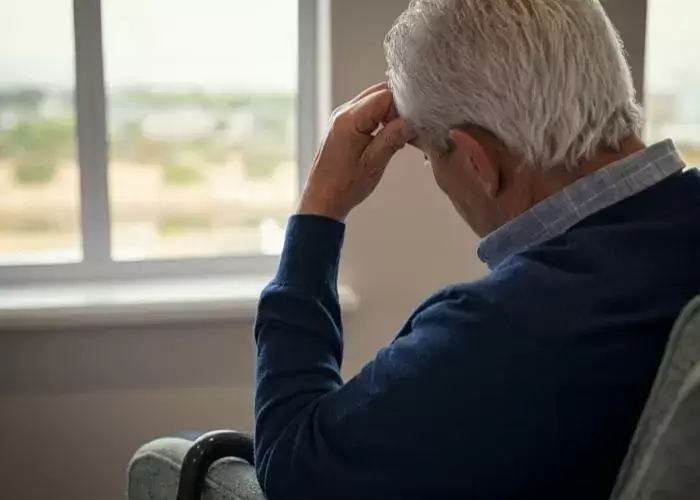|
Occasionally having a terrible day or feeling down is natural, but experiencing these emotions often is typically a sign of something more serious—depression. Depression in older folks is more than merely experiencing "the blues" or grieving the loss of a loved one. It is a really real medical problem that is also curable.
Although senior depression is not a typical aspect of aging, older persons are more likely to experience it. The Centers for Disease Control report that depression in seniors is frequently misunderstood because medical professionals mistake the symptoms of depression for a healthy response to disease or other life events. Even though seniors are more likely to experience depression, the majority of them do not. In addition, the majority of seniors who receive treatment, antidepressant medication, or both report improvements in their symptoms. Common Symptoms of Depression The symptoms of sadness in older persons might be difficult to spot; you might see an empty plate of food or a lack of interest in once-enjoyable pastimes. Prolonged sadness or worry that might continue for weeks is one of the strongest warning signs of depression. In addition to depression, older persons may also exhibit:
Possible Causes of Elderly Depression Although the precise reasons of senior depression are unknown, experts think a person's overall life circumstances may be a contributing factor. While it's crucial to understand the signs of depression in older folks, it's also crucial to understand what can make someone more susceptible to the illness. Although every person is unique, the following are some potential causes of depression in older adults: Isolation The environments of older people can seem more and more lonely. It's possible for partners and loved ones to pass away, as well as for neighbors, friends, and family to move and for it to get harder to leave the house physically. Medical Problems After a procedure or sickness, older folks may experience difficulties. Feelings of helplessness may result from a surgery that limits a person's ability to be as active as they previously were or from a disease like cancer, a stroke, or a chronic condition. Severe or Traumatic Situations Major traumatic incidents can occur in a person's life when they least anticipate it. Seniors' mental health may suffer if they are abused, lose a loved one, or have financial difficulties. Drug or Alcohol Usage A person's behavior and mental state may alter as a result of taking certain drugs. It's best to discuss how your medications are impacting you or a loved one with your doctor. Similar emotional changes might also result from alcohol use. How to Support Seniors Who Are Depressed The good news is that there are many ways to assist and support elderly people who are depressed. Here is a list of methods you might help a loved one if you are worried about them and believe they may be depressed: Discuss It The key is communication. One of the finest methods to find out what's going on with a loved one is to have a one-on-one talk with them. An older adult may benefit from simply venting, while other times you may discover they need assistance but are hesitant to ask for it. In either case, spend some time talking about what is going on in their life. Numerous Check-Ins For an elderly person, relocating to a senior living facility is a significant transition. Frequent calls or visits are one technique to help them feel more at home. Plan a time slot to let your family member know you are there for them and stick to it. Simple inquiries such as "how are you doing?" and "what did you do today?" can be quite helpful. Plan Your Activities Spend time playing games, taking walks, or exploring the neighborhood if you can make it there in person. Give the older adult in your life something to look forward to by scheduling an activity like visiting a museum, trying a new restaurant, or visiting with other family members and friends. Accompany Them to Medical Appointment Be sensitive in your approach because your relative might be reluctant to ask for assistance. You can let an elderly person know they are not alone in their struggles by offering to accompany them to an appointment. This may be a crucial stage in your loved one's diagnosis and, if necessary, treatment. For a senior with depression, moving into a senior living facility can have a lot of advantages. Communities like BSH Care provide an inviting environment that encourages older individuals to engage with one another and stay active through a variety of events and activities. The communities of AlerisLife and BSH Care hold that a person's quality of life is ageless. We provide a variety of senior living alternatives at BSH Care communities, all of which are constructed with a high level of service and a strong feeling of community. To locate a senior living facility nearby, get in touch with us.
0 Comments
Leave a Reply. |
|
QUICK LINKS
|
Award-winning care as recognized by
Your comments and satisfaction are important to us.
Consider writing a review on Google or Facebook. |
© 2024 Bridgeway Senior Healthcare. All Rights Reserved | Privacy Policy | Sitemap







